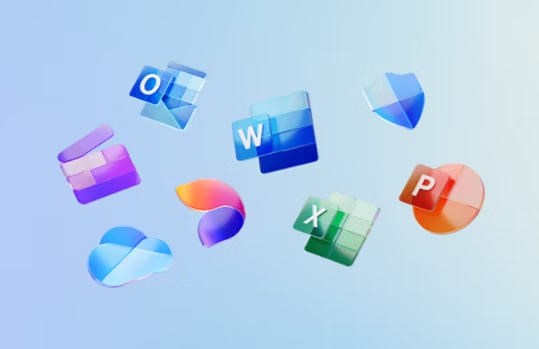
Why People Are Moving Away from Microsoft Office
Microsoft Office has ruled productivity tools for decades. But many are now switching.
Here’s why:
- Subscription fatigue: Microsoft 365 charges monthly or yearly.
- File compatibility: Some need open formats like ODT or PDF/A.
- Platform lock-in: Not all features work outside Windows/macOS.
Others seek leaner tools with faster loading, better collaboration, or just a free license.
What to Look for in an Office Suite
Not all alternatives are created equal. Consider:
- Word processing: Smooth editing, formatting, and layout tools.
- Spreadsheet power: Functions, charts, macros.
- Presentations: Animations, transitions, export options.
- Cloud vs desktop: Do you need offline or web-first access?
- Compatibility: Can it open/edit/save
.docx,.xlsx,.pptx?
Top Microsoft Office Alternatives Reviewed
1. LibreOffice
Features:
Includes Writer, Calc, Impress. Open-source and regularly updated.
Pros:
- Free and offline
- Great compatibility with MS formats
- Active community
Cons:
- UI not as modern
- Lacks real-time collaboration
Best for: Users who want a full-featured desktop suite
2. Google Workspace
Features:
Docs, Sheets, Slides with real-time collaboration and cloud syncing.
Pros:
- Cloud-based and responsive
- Auto-save and sharing
- Seamless Gmail/Drive integration
Cons:
- Requires internet
- Formatting occasionally breaks with
.docx
Best for: Teams and remote workers
3. WPS Office
Features:
All-in-one window design with tabs for Writer, Presentation, and Spreadsheets.
Pros:
- Looks like MS Office
- Supports PDF and cloud
- Mobile and desktop support
Cons:
- Ad-supported free version
- Some features behind paywall
Best for: Windows users wanting an Office-like experience
4. OnlyOffice
Features:
Modern interface with Docs, Sheets, and Slides; available for self-hosting.
Pros:
- Fully compatible with Microsoft files
- Online and desktop apps
- Open-source community edition
Cons:
- Lacks some formatting tools
- More technical setup for self-hosting
Best for: Teams needing local control + online collaboration
5. Zoho Workplace
Features:
Docs, Sheets, Show, Mail, and more—all cloud-based.
Pros:
- Clean interface
- Email and calendar integration
- Strong mobile apps
Cons:
- Not as widely adopted
- Slight lag with large documents
Best for: Small businesses and startups
6. FreeOffice by SoftMaker
Features:
Offline suite with TextMaker, PlanMaker, and Presentations.
Pros:
- Free version available
- Supports
.docx,.xlsx,.pptx - Fast and light
Cons:
- Some features locked in paid version
- Outdated icons
Best for: Users needing a fast, offline MS Office alternative
7. Microsoft Office 365
Features:
Industry-standard Word, Excel, PowerPoint with cloud support and 1TB storage.
Pros:
- Best compatibility
- Rich templates
- Works online and offline
Cons:
- $69.99/year per user
- Resource-heavy apps
Best for: Enterprise teams and long-term users
Comparison Table
| Suite | Free | Cloud | Desktop | Compatibility | Best For |
|---|---|---|---|---|---|
| LibreOffice | ✅ | ❌ | ✅ | High | Offline users, open formats |
| Google Workspace | ❌ | ✅ | ❌ | Good | Remote teams |
| WPS Office | ✅ | ✅ | ✅ | Excellent | Windows users, Office feel |
| OnlyOffice | ✅ | ✅ | ✅ | Excellent | Collaboration + control |
| Zoho Workplace | ✅ | ✅ | ❌ | Good | SMBs and startups |
| FreeOffice | ✅ | ❌ | ✅ | Good | Lightweight offline use |
| Microsoft 365 | ❌ | ✅ | ✅ | Perfect | Enterprises |
Best Free Microsoft Office Alternatives
- LibreOffice – best desktop replacement
- Google Docs – top cloud collaboration
- FreeOffice – fast for personal use
Best Paid Alternatives to Microsoft Office
- WPS Premium – affordable and slick
- Zoho Workplace – full business suite
- OnlyOffice Enterprise – for custom deployments
Mobile and Browser Access
| Suite | Mobile App | Browser-Based |
|---|---|---|
| LibreOffice | ❌ | ❌ |
| Google Workspace | ✅ | ✅ |
| WPS Office | ✅ | ✅ |
| OnlyOffice | ✅ | ✅ |
| Zoho Workplace | ✅ | ✅ |
| FreeOffice | ✅ (basic) | ❌ |
| Microsoft Office | ✅ | ✅ |
File Format Support (.DOCX, .XLSX, .PPTX)
Most suites handle Microsoft formats well. Google Docs, OnlyOffice, and WPS Office have the best compatibility. LibreOffice is reliable but occasionally breaks complex formatting.
FAQs – Choosing the Best Office Suite
1. What’s the best free Microsoft Office alternative?
LibreOffice for offline; Google Docs for online editing.
2. Can I open .docx files without Word?
Yes. All tools listed can open and edit .docx.
3. Which tool works best on mobile?
WPS Office and Google Workspace both have strong mobile apps.
4. Is LibreOffice compatible with Microsoft files?
Yes, though minor formatting issues may occur.
5. What’s best for small businesses?
Zoho Workplace and OnlyOffice are great for teams.
6. Is there a one-time purchase alternative?
Yes—FreeOffice or WPS Office (Premium lifetime license).
Final Verdict – What’s the Best Microsoft Office Alternative?
Your best option depends on your needs. For a full offline suite, go with LibreOffice. For seamless collaboration, Google Workspace leads. If you want a familiar UI without subscriptions, WPS Office is your friend. And for control with flexibility, OnlyOffice shines.
Microsoft Office is no longer the only player on the field—2025 is full of worthy contenders.
0 Comments